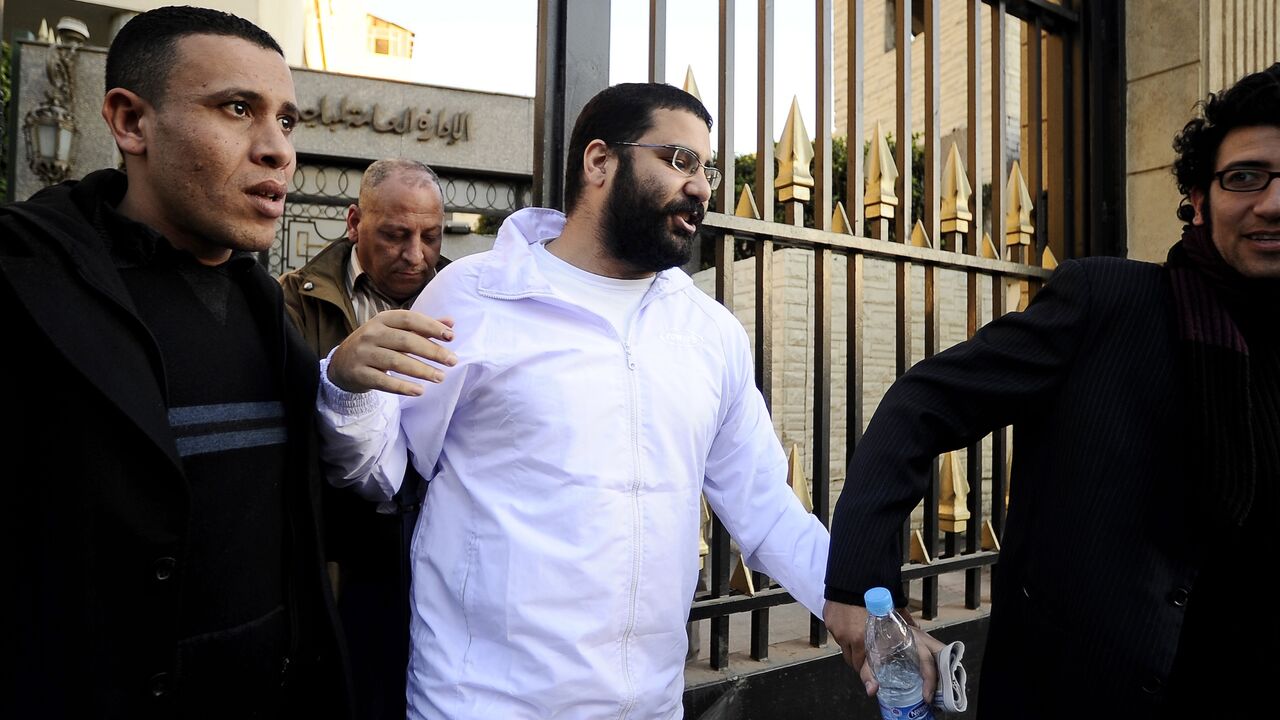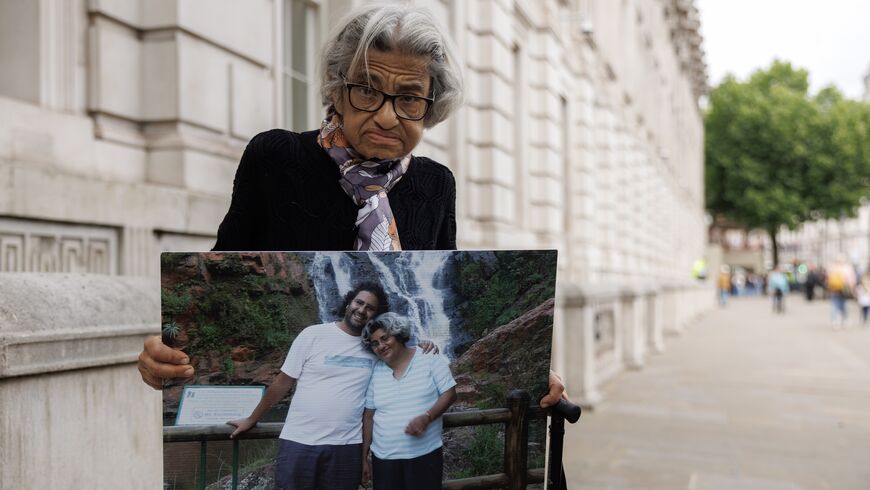What to make of Egypt's removal of Alaa Abdel-Fattah from terror list
An Egyptian court has removed a prominent jailed activist from the country's terrorism list amid scrutiny over Egypt’s human rights record under President Abdel Fattah al-Sisi.

A court in Egypt removed a prominent jailed activist from the country's terrorism list on Monday, a rare move amid ongoing scrutiny from foreign governments and rights organizations over Egypt’s human rights record under President Abdel Fattah al-Sisi.
What happened: The Badr Criminal Court in Cairo ordered the removal of Alaa Abdel-Fattah, a blogger, political activist and software developer, after an investigation determined that he was no longer involved in any activity for the outlawed Muslim Brotherhood, according to a court statement cited by Egyptian media.
Abdel-Fattah was added to the list in 2020 for a five-year term, and his case was reviewed at the end of that period. Abdel-Fattah has denied all accusations leveled against him, including that he had ties to the Muslim Brotherhood.
Human rights lawyer Khaled Ali, who represented Abdel-Fattah for several years, confirmed the decision in a statement posted on X and Facebook.
The court's ruling lifts several restrictions, including an asset freeze and travel ban. But whether it will lead to Abdel-Fattah’s release from prison remains unclear.
Background: Abdel-Fattah, 43 years old, who has spent most of the past decade in prison, became a leading pro-democracy activist and blogger during Egypt’s 2011 uprising that led to the fall of longtime President Hosni Mubarak as part of the broader Arab Spring, which saw pro-democracy protests and armed opposition sweep much of the Arab world.
He was first arrested in November 2013 for taking part in a protest against a law that banned unauthorized demonstrations and was sentenced to five years in prison on charges of staging a protest without a permit and assaulting a police officer in February 2015. Amnesty International condemned his arrest at the time as politically motivated, saying he was beaten by security forces who raided his home without a warrant.
After being released in March 2019 with a five-year probation period, Abdel-Fattah was swiftly rearrested in September of the same year. He remained in pretrial detention until 2021, when he was handed another five-year sentence for spreading fake news in a Facebook post he shared about alleged torture in Egyptian prisons.
The Cairo Criminal Court added Abdel-Fattah to Egypt’s terrorism list in November 2020 for a period of five years in what rights groups described as an arbitrary move.
Egypt's terror list was created in 2015 following a surge of militant attacks across the country. It includes individuals and entities accused by the Sisi government of being involved in terrorism-related activities, including illicit funding of, planning with, incitement of, and affiliation with banned groups. Among those on the list were late President Mohamed Morsi, several Muslim Brotherhood leaders, former soccer star Mohamed Abu Trika and journalist Hisham Gaafar.
Abdel-Fattah, who obtained UK citizenship in 2021 through his British-born mother, drew international attention again in November 2022 when he intensified a hunger strike that he had begun in April of that year. He initially limited his calorie intake, but then also stopped drinking water as he demanded Egyptian authorities to allow him British consular access.
The British government has actively pressured Egypt to release Abdel-Fattah. Prime Minister Keir Starmer raised the case directly with President Abdel Fattah al-Sisi during calls in February and June 2025, emphasizing the UK's concerns over his continued detention. The UK Foreign Office has also confirmed ongoing diplomatic efforts, stating it is “committed to securing Alaa’s release” and monitoring his family’s situation closely, according to the Associated Press. Meanwhile, British MPs and human rights groups have called for stronger actions, including sanctions and travel advisories, urging the government to escalate pressure if Egypt fails to act.
Abdel-Fattah has been subjected to various forms of torture and ill-treatment while in jail, according to his family and several rights groups. In May 2022, he was transferred from the Tora maximum security prison to the Wadi al-Natrun prison in Beheira province.
Laila Soueif, mother of activist Alaa Abd el-Fattah, who is imprisoned in Egypt, holds a picture of herself and her son while continuing her hunger strike on May 28, 2025, outside Downing Street in London, England. (Dan Kitwood/Getty Images)
Know more: Egypt under Sisi has come under much international criticism over its deteriorating human rights record.
Egyptian authorities have led a massive crackdown on dissent since Sisi came to power in 2014, a year after leading a military coup against Morsi.
The Arabic Network for Human Rights Information estimates that as many as 65,000 people were arrested between 2013 and March 2021 for political reasons, and many remain in pretrial detention. The majority were slapped with vague charges such as spreading false news, misusing social media or belonging to a terrorist group — accusations commonly handed to critics of Sisi.
In May 2023, Sisi launched the so-called national dialogue with opposition forces, an effort, he said, that aims “to find alternatives and achieve progress in the political, economic and social fields.” In 2022, he reactivated the Presidential Pardon Committee that was initially formed in October 2016 to review the cases of political prisoners.
Since then, authorities have released thousands of political prisoners — the exact number is not publicly available — including high-profile activists such as human rights researcher Patrick George Zaki and Abdel-Fattah's current lawyer, Mohamed al-Baqer, in 2023.

